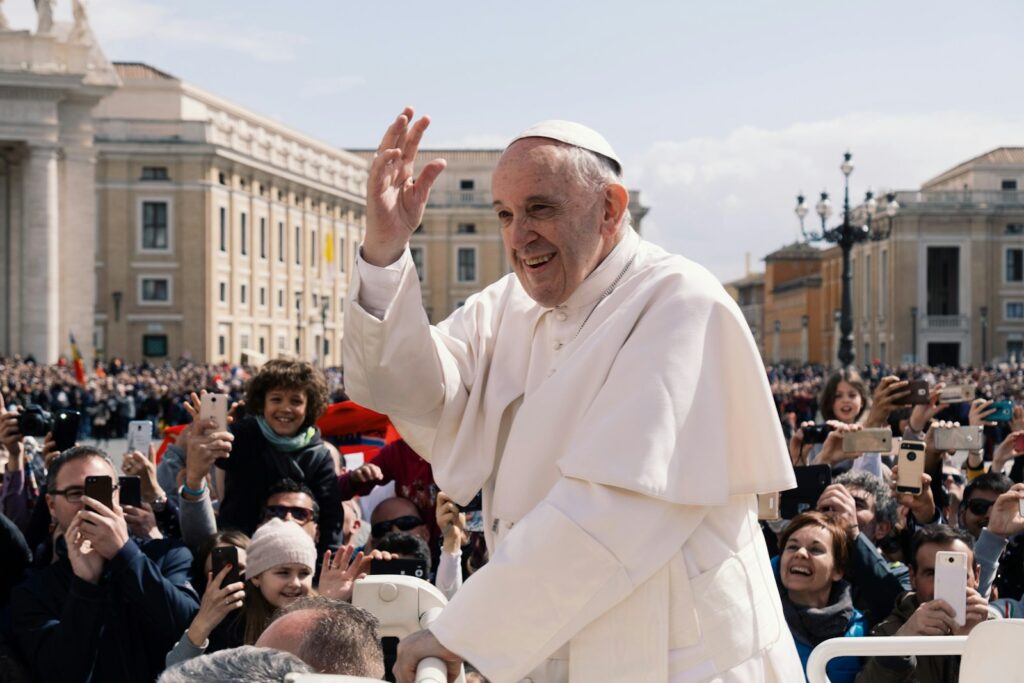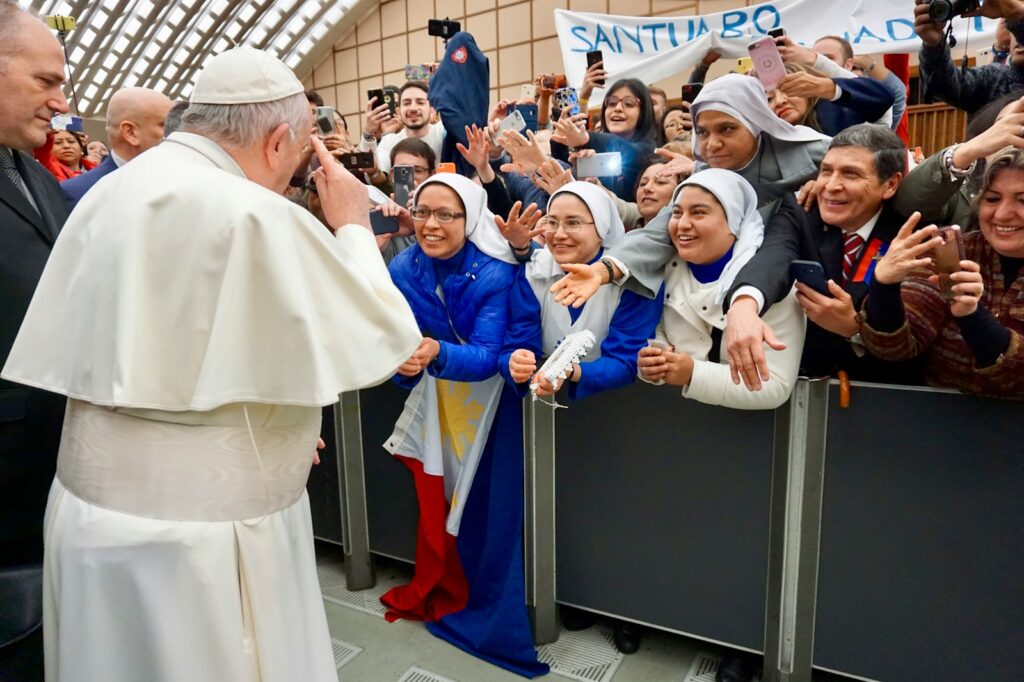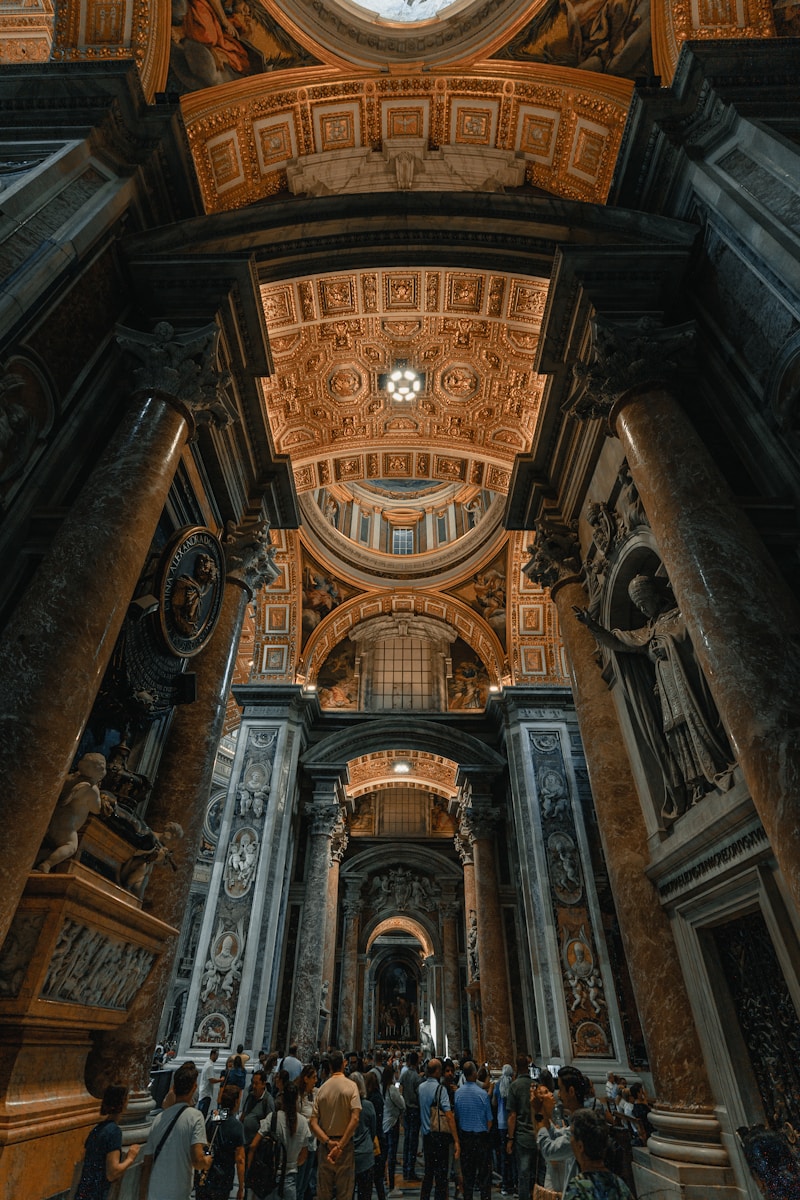A Pope Leaves Us, A Quest Begins: Grief as a Driver of Personal Development
Table of Contents

Introduction
Did you know that 92% of people who have experienced profound grief report having undergone a significant personal transformation in the years that follow? When a pope leaves us, it’s not only the Catholic Church that enters a period of transition, but also millions of faithful across the world who embark on an inner journey. A pope leaves us, a quest begins – this reality confronts us with one of the most powerful paradoxes of human existence: how can loss become a catalyst for growth? In this article, we will explore how to transform collective grief into an opportunity for personal development, drawing inspiration from the powerful symbolism of papal transition.
Ingredients to Transform Grief into Personal Development
To undertake this transformative journey after a pope leaves us and a quest begins, you will need the following elements:

- Emotional openness – The ability to welcome and express your authentic emotions (possible substitution: mindfulness practice)
- Community support – Connections with others who share your experience (possible substitution: online support groups)
- Spiritual resources – Texts, prayers, or practices that nourish your soul (possible substitution: secular meditation)
- Personal journal – A space to document your journey (possible substitution: reflective writing applications)
- Symbols of transition – Objects or rituals that represent the passage (possible substitution: personal artistic creation)
- Patience and self-compassion – The most crucial ingredient that cannot be substituted
Temporality of the Grief and Transformation Process
The journey from grief to personal growth after a pope leaves us and a quest begins is not linear and varies considerably from person to person. Contrary to the popular belief in the “5 stages of grief,” recent research shows that the process is much more fluid and personalized.
- Initial shock phase: 1-4 weeks
- Emotional integration period: 3-18 months
- Emergence of new perspectives: 6 months to 2 years
- Transformation and growth: 1-5 years and beyond
In comparison, the sede vacante period (vacant seat) between two popes usually lasts only 2-3 weeks, a reminder that institutions can renew themselves more quickly than human hearts.
Steps to Transform Grief into Personal Development
Step 1: Recognize the Reality of the Loss
When a pope leaves us and a quest begins, the first step is to fully recognize the reality of this loss. Allow yourself to feel the initial shock without judgment. According to a Harvard University study, people who allow themselves to fully experience their initial emotions of grief are 67% more likely to develop long-term resilience.
Personalized advice: Create a small personal ritual to mark this recognition – light a candle, write a letter, or simply take a few minutes of intentional silence each day.

Step 2: Explore Personal Meaning
Question yourself about what the departed papal figure represented for you. Was he a spiritual guide, a symbol of tradition, or perhaps even a figure with whom you had disagreements? This reflection often reveals our deep values and spiritual aspirations.
Personalized advice: Use guided questions in your journal such as “What did I admire most about his leadership?” or “What qualities would I like to cultivate in my own life?”

Step 3: Participate in Collective Rituals
Ceremonies marking the papal transition offer a valuable structure for channeling collective grief. Participation, even remotely via media, can create a sense of belonging that combats the isolation often felt during grief.
Personalized advice: Adapt traditional rituals to your personal situation – perhaps by organizing a small vigil with friends or creating your own commemoration ceremony.
Step 4: Identify Teachings to Preserve
When a pope leaves us, a quest begins to determine which spiritual and intellectual legacy we wish to integrate into our own lives. Take time to identify the teachings or qualities of the deceased pope that resonate most with you.
Personalized advice: Create an “inspiration library” by gathering quotes, homilies, or writings from the deceased pope that particularly touch you.
Step 5: Embrace the Uncertainty of Transition
The period between two popes (sede vacante) perfectly symbolizes the “in-between spaces” of our lives – those moments of uncertainty where the old is finished but the new is not yet defined. These periods, although uncomfortable, are often the most fertile for personal growth.
Personalized advice: Consciously adopt a posture of openness to uncertainty. Try a small action each day that takes you out of your comfort zone.
Step 6: Cultivate Hope and Vision for the Future
Just as the conclave seeks to discern the future direction of the Church, use this period to reflect on your own path ahead. Grief often invites us to reconsider our priorities and sense of personal mission.
Personalized advice: Create a spiritual or existential “vision board” that represents the qualities and aspirations you wish to cultivate in this new phase of your life.

Step 7: Integrate the Change into Your Identity
The final step is to integrate this transition experience into your understanding of yourself. How has this experience of grief and renewal modified your perception of life, spirituality, or your place in the world?
Personalized advice: Write a letter to your “former self” from before this experience, acknowledging the path traveled and lessons learned.
Essential Information on Grief as a Driver of Development
Research in positive psychology has identified a phenomenon called “post-traumatic growth” that perfectly corresponds to our theme “a pope leaves us, a quest begins”. Here are key data to know:
- 5 domains of potential growth after grief:
- Increased appreciation of life
- Deeper relationships
- Discovery of new possibilities
- Enhanced personal strength
- Spiritual development
- Factors promoting positive transformation:
- Quality social support (increases chances of positive transformation by 78%)
- Regular reflective practices (meditation, journaling)
- Meaning given to the experience
- Ability to maintain positive emotions even in pain
- Temporality of transformation:
- 12-24 months: period where the majority of people begin to perceive transformative aspects of their grief experience
- 3-5 years: period where the integration of changes becomes more complete
Healthier Alternatives for Experiencing Grief
When a pope leaves us and a quest begins, certain approaches to grief are more favorable to personal development than others:
Instead of emotional suppression, practice progressive acceptance of emotions – grant yourself “appointments with grief,” specific moments to fully feel your emotions in a safe setting.
Instead of isolation, seek a support community adapted to your personality – this can be a small intimate group for introverts or larger gatherings for extroverts.
Instead of unproductive rumination, adopt structured reflection – use techniques like narrative therapy or guided expressive writing to give meaning to your experience.
Instead of rushing to “move on”, embrace the notion of “growing around grief” – the idea that we don’t forget but learn to integrate loss into a rich and meaningful life.

Support Suggestions for Your Journey
To enrich your transformative journey after a pope leaves us and a quest begins, consider these forms of support:
- Create a reflection circle with other people affected by this transition – regular meetings to share thoughts and feelings can amplify the potential for growth.
- Develop a daily ritual inspired by the qualities you admired in the deceased pope – perhaps a moment of prayer, service to others, or spiritual reading.
- Associate your grief journey with a cause close to your heart, thus transforming loss into positive action in the world.
- Complement your personal reflection with readings on the spirituality of grief and transformation – the writings of Henri Nouwen, Thomas Merton, or Jean Vanier offer profound perspectives on this theme.
Common Mistakes to Avoid
In the process of transforming grief after a pope leaves us and a quest begins, avoid these frequent pitfalls:
- Comparing your grief journey to others’ – According to a Columbia University study, this comparison is the factor that most interferes with the natural healing process (mentioned by 76% of people having difficulties progressing in their grief).
- Seeking complete “closure” – Contemporary research on grief suggests that we never completely “close” the chapter of a significant loss, but rather learn to build a new relationship with what has been lost.
- Exclusively intellectualizing the process – Grief requires emotional and bodily engagement, not just mental. Purely intellectual approaches often leave emotions unprocessed.
- Ignoring the spiritual dimensions of grief – Even for non-religious people, grief often raises profound existential questions that deserve exploration.
- Neglecting basic physical needs – The stress of grief deeply affects our physiology, making good nutrition, adequate sleep, and moderate exercise essential.
Tips for Preserving Your Personal Journey
To maintain and nurture your personal development in the long term after a pope leaves us and a quest begins:
- Document your journey in a dedicated journal that you can revisit in the years to come – neurologists affirm that handwriting activates parts of the brain associated with emotional integration.
- Create a “metaphorical reliquary” – a physical or digital space where you keep memories, reflections, and symbols of this period of transformation.
- Establish “anniversary appointments” with yourself to reflect on your journey – significant dates such as the anniversary of the death or the election of the new pope can serve as annual moments of reflection.
- Share your experience with others when you feel ready – the act of narration consolidates our own integration while potentially offering support to others.
- Consciously integrate lessons learned into your daily life – transform insights into concrete practices that enrich your everyday life.
Conclusion
When a pope leaves us, a quest begins truly, both for the Church and for individuals touched by this transition. By consciously traversing the stages of grief, avoiding common pitfalls, and actively cultivating personal growth, we can transform this experience of loss into a powerful catalyst for development. The end of a papal era can thus mark not only a new chapter for the institution but also for our own spiritual and human journey.
Have you experienced personal transformation following significant grief? Share your testimony in the comments section below. And to receive other reflections on contemporary spirituality and personal development, don’t hesitate to subscribe to our weekly newsletter.
FAQs
Q: How long does it take to “get over” grief related to the loss of a spiritual figure like a pope?
A: The concept of “getting over” grief is actually a myth. Contemporary research suggests that we never completely overcome significant losses, but rather learn to live differently with them. For a collective figure like a pope, this process can take 1 to 3 years before new spiritual relationships form completely.
Q: Is collective grief different from personal grief?
A: Yes, collective grief like that experienced when a pope leaves us and a quest begins has unique dimensions. It often offers a ritualized framework and a sense of community that can facilitate the process. However, it can also complicate the expression of individual emotions that differ from the dominant collective sentiment.
Q: How can I support a friend who seems deeply affected by the death of a pope?
A: Listen without judging the intensity of their emotions. For some people, a papal figure represents a deep connection to their faith, culture, or significant moments in their life. Offer to explore together what this figure specifically represented for your friend and what he or she wishes to preserve from this legacy.
Q: Is it normal to feel grief for someone you’ve never personally met?
A: Absolutely. This phenomenon, sometimes called “parasocial grief,” is particularly common regarding public and spiritual figures like a pope. These people often occupy an important symbolic role in our emotional and spiritual landscape, making grief completely natural and legitimate.
Q: How do I know if my grief experience is actually transforming into personal development?
A: Signs include a growing ability to talk about the loss with a balance of emotions (not just pain), the emergence of new perspectives or priorities in your life, a feeling of deeper connection with certain values, and the ability to find meaning in the experience while acknowledging its difficulty.







